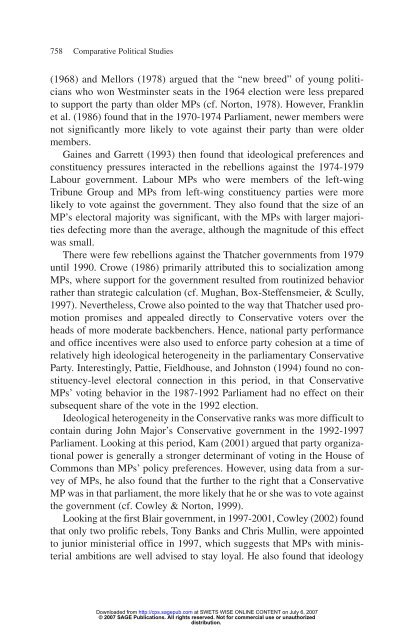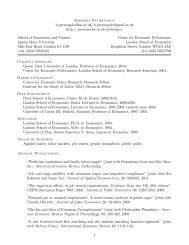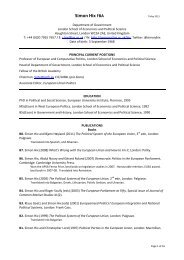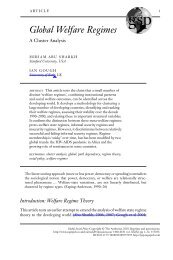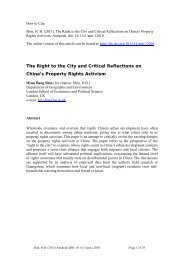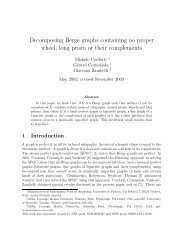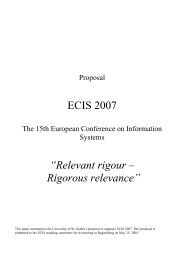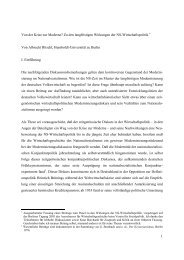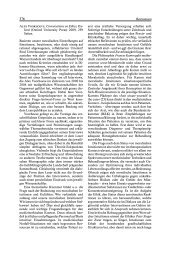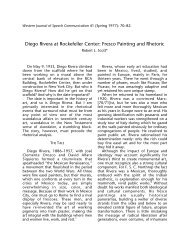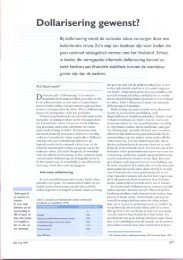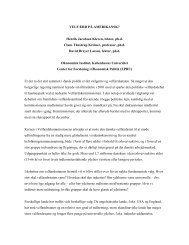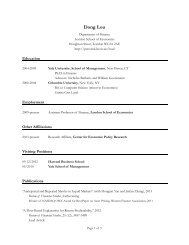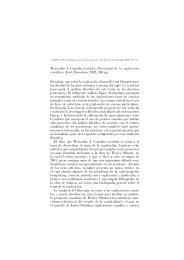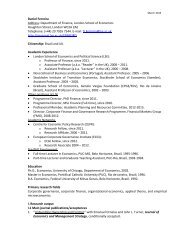The Rejected, the Ejected, and the Dejected: Explaining ...
The Rejected, the Ejected, and the Dejected: Explaining ...
The Rejected, the Ejected, and the Dejected: Explaining ...
Create successful ePaper yourself
Turn your PDF publications into a flip-book with our unique Google optimized e-Paper software.
758 Comparative Political Studies<br />
(1968) <strong>and</strong> Mellors (1978) argued that <strong>the</strong> “new breed” of young politicians<br />
who won Westminster seats in <strong>the</strong> 1964 election were less prepared<br />
to support <strong>the</strong> party than older MPs (cf. Norton, 1978). However, Franklin<br />
et al. (1986) found that in <strong>the</strong> 1970-1974 Parliament, newer members were<br />
not significantly more likely to vote against <strong>the</strong>ir party than were older<br />
members.<br />
Gaines <strong>and</strong> Garrett (1993) <strong>the</strong>n found that ideological preferences <strong>and</strong><br />
constituency pressures interacted in <strong>the</strong> rebellions against <strong>the</strong> 1974-1979<br />
Labour government. Labour MPs who were members of <strong>the</strong> left-wing<br />
Tribune Group <strong>and</strong> MPs from left-wing constituency parties were more<br />
likely to vote against <strong>the</strong> government. <strong>The</strong>y also found that <strong>the</strong> size of an<br />
MP’s electoral majority was significant, with <strong>the</strong> MPs with larger majorities<br />
defecting more than <strong>the</strong> average, although <strong>the</strong> magnitude of this effect<br />
was small.<br />
<strong>The</strong>re were few rebellions against <strong>the</strong> Thatcher governments from 1979<br />
until 1990. Crowe (1986) primarily attributed this to socialization among<br />
MPs, where support for <strong>the</strong> government resulted from routinized behavior<br />
ra<strong>the</strong>r than strategic calculation (cf. Mughan, Box-Steffensmeier, & Scully,<br />
1997). Never<strong>the</strong>less, Crowe also pointed to <strong>the</strong> way that Thatcher used promotion<br />
promises <strong>and</strong> appealed directly to Conservative voters over <strong>the</strong><br />
heads of more moderate backbenchers. Hence, national party performance<br />
<strong>and</strong> office incentives were also used to enforce party cohesion at a time of<br />
relatively high ideological heterogeneity in <strong>the</strong> parliamentary Conservative<br />
Party. Interestingly, Pattie, Fieldhouse, <strong>and</strong> Johnston (1994) found no constituency-level<br />
electoral connection in this period, in that Conservative<br />
MPs’ voting behavior in <strong>the</strong> 1987-1992 Parliament had no effect on <strong>the</strong>ir<br />
subsequent share of <strong>the</strong> vote in <strong>the</strong> 1992 election.<br />
Ideological heterogeneity in <strong>the</strong> Conservative ranks was more difficult to<br />
contain during John Major’s Conservative government in <strong>the</strong> 1992-1997<br />
Parliament. Looking at this period, Kam (2001) argued that party organizational<br />
power is generally a stronger determinant of voting in <strong>the</strong> House of<br />
Commons than MPs’ policy preferences. However, using data from a survey<br />
of MPs, he also found that <strong>the</strong> fur<strong>the</strong>r to <strong>the</strong> right that a Conservative<br />
MP was in that parliament, <strong>the</strong> more likely that he or she was to vote against<br />
<strong>the</strong> government (cf. Cowley & Norton, 1999).<br />
Looking at <strong>the</strong> first Blair government, in 1997-2001, Cowley (2002) found<br />
that only two prolific rebels, Tony Banks <strong>and</strong> Chris Mullin, were appointed<br />
to junior ministerial office in 1997, which suggests that MPs with ministerial<br />
ambitions are well advised to stay loyal. He also found that ideology<br />
Downloaded from<br />
http://cps.sagepub.com at SWETS WISE ONLINE CONTENT on July 6, 2007<br />
© 2007 SAGE Publications. All rights reserved. Not for commercial use or unauthorized<br />
distribution.


